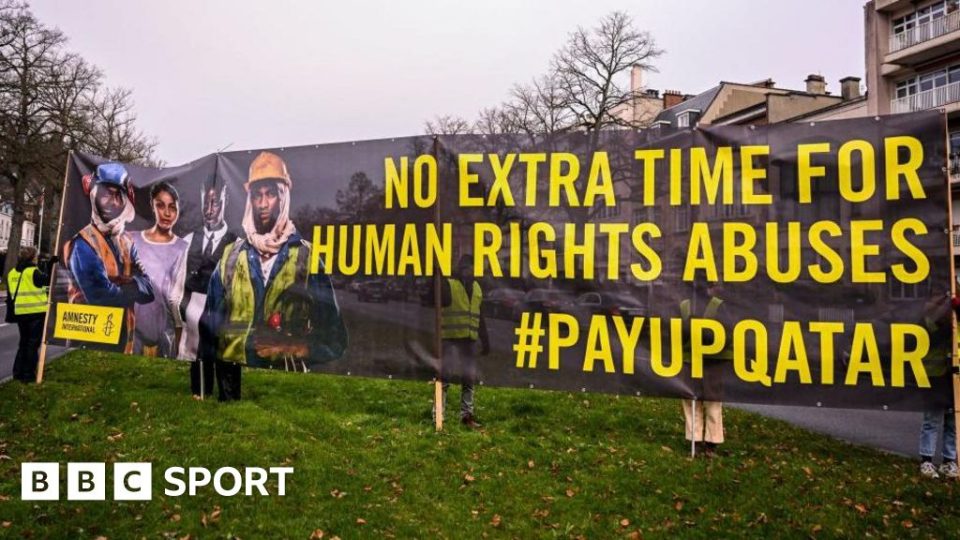FIFA must “rigorously and transparently ensure” that bids to host the 2030 and 2034 men’s World Cups safeguard human rights, according to Amnesty International.
In a recent report, the campaign group asserts that FIFA “must terminate any agreement to host the tournament if human rights are jeopardized or violated.”
Last year, FIFA confirmed Spain, Portugal, and Morocco as co-hosts for 2030, with the opening matches taking place in Uruguay, Argentina, and Paraguay. Saudi Arabia remains the sole bidder for the 2034 tournament.
FIFA maintains it is “fully committed” to upholding human rights and sustainability standards recognized internationally when staging tournaments. However, Amnesty International highlights serious human rights concerns regarding both bids.
Amnesty’s report criticizes Saudi Arabia’s “appalling human rights record,” noting that the Gulf kingdom’s bid “carries a broad range of very serious risks.” The report also addresses the 2030 tournament, warning of “human rights risks primarily related to labor rights, discrimination, freedom of expression and assembly, policing, privacy, and housing.”
Amnesty International raises environmental concerns as well, stating that greenhouse gas emissions from travel related to the expanded 48-team tournament across three continents will likely be significant. This is despite FIFA’s commitment to halve carbon emissions by 2030 and achieve “net-zero” by 2040.
Amnesty claims FIFA has not responded to its requests to speak with consultants involved in human rights-based assessments of the bids.
FIFA has yet to comment officially but plans to confirm the hosts of the two tournaments later this year. When unveiling its hosting choices, FIFA emphasized its commitment to “sustainable event management standards and practices” and to respecting internationally-recognized human rights in accordance with the United Nations Guiding Principles on Business and Human Rights.
Steve Cockburn, Amnesty’s Head of Labour Rights and Sports, commented, “With only a single bid to host each tournament and major human rights concerns surrounding both, there are huge questions about FIFA’s willingness to stand by the pledges and reforms it has made in recent years, including exercising its right to reject any bid which does not meet its stated human rights requirements.”
Amnesty’s report points out risks in Spain, Morocco, and Portugal, such as the exploitation of migrant workers, the excessive use of police force, and racial discrimination. In Morocco, the criminalization of same-sex acts and restrictions on freedom of expression are also highlighted.
Amnesty further criticizes Saudi Arabia, arguing that its investment in sports aims to distract from its poor human rights record. The report suggests the 2034 tournament could heighten risks of forced evictions and labor abuses, noting the need for “sweeping changes to labor laws” and the release of unjustly imprisoned activists and human rights defenders.
Last year, Saudi Sports Minister Prince Abdulaziz bin Turki Al Faisal rejected claims of ‘sportswashing’ and defended the country’s bid for the 2034 tournament, emphasizing Saudi Arabia’s passion for football and its history of hosting global events. He stated, “Any country has room for improvement, no one’s perfect. We acknowledge that and these events help us reform to a better future for everyone.”
Credit: BBC News





